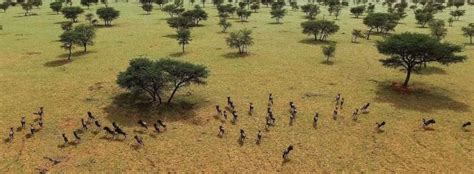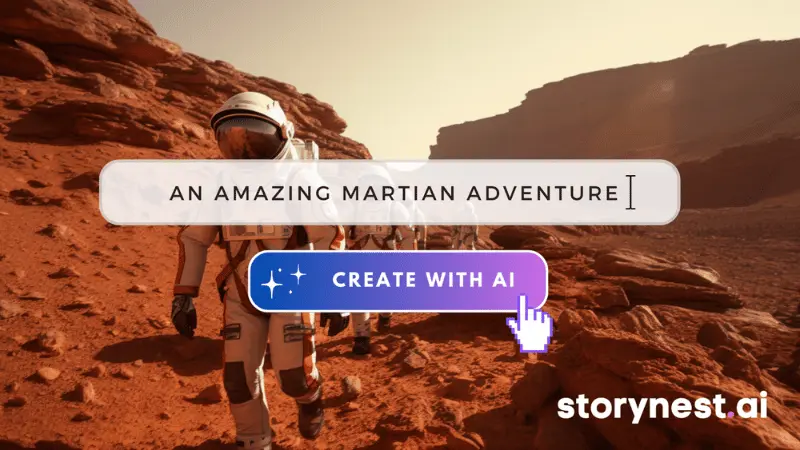AI, or Artificial Intelligence, has been a hot topic of discussion over the last two years. Chatbots are in the headlines, but AI is all around us; it includes all manners of machine learning, natural language processing, speech recognition, expert systems, machine vision and more. Here in Southern Africa, AI has been touted as the next big thing and the secret ingredient Africa can use to surge the growth of its economies and ecosystems.
However, despite the potential benefits of AI, Southern African countries have been slow to adopt this technology. I’ve taken a look at the potential applications of AI in various sectors, the challenges faced by Southern African countries in adopting AI, the current state of AI adoption in the region, and the role of governments and international organizations in promoting AI adoption. There is a real need for nations to take an active role in shaping the direction of AI development to ensure that it is adapted to local needs and contexts, and not left only to multinationals.
SUCH Great Potential
It is speculated that AI will soon carry out complex tasks, and where it can’t take over completely, it will ease the workflow and processes for jobs normally done by human beings in many sectors:
Smart technologies in agriculture are hoped to ease famine and hunger as farmers are able to increase yields. By telling people when the best time to plant and grow crops is, by predicting rain patterns for the planting season, by efficiently targeting the use of fertilizer; in all these ways AI can promote resilience against inevitable climate change and promote sustainability.
Environmental conservation is an active area for AI integration, with nations and NGOs using AI in wildlife monitoring, anti-poaching efforts, and climate change modeling.
In the field of education, AI has been promoted to increase learning and training to improve the general literacy of the continent. It could spread more effective teaching methods and improve educational outcomes across the diverse learning environments in Southern Africa.
The health sector hopes to benefit from AI through reorganising the archaic health system and developing a shift from reactive to proactive, thus predicting when a health crisis such as cholera or malaria might break out. AI could also help streamline administration in the health sector to help attract and retain healthcare professionals.
Many other fields will potentially be affected, with banks and investment firms already using AI to detect fraud and offer personalized financial recommendations, while cities are looking at AI to help optimize public safety and transportation systems.
Against Many Challenges
All the above sound good and promising however a quick survey of how Southern African countries have integrated AI in their systems leaves a lot to be desired, as most countries have not yet made use of the new technology.

The reasons for that are many, but a lack of core infrastructure is chief among them. Most Southern African countries, with the possible exception of South Africa itself, are still trying to bridge the digital divide and provide internet connectivity for their citizens. One such example is Malawi which years after the boom of the internet is still playing catch up in trying to provide access to the internet and cheaper laptops and cell phones, which remain expensive due to the high taxes imposed on the devices.
Indeed, many countries are struggling to formulate AI policy because they are still grappling with the development of policies for the internet itself. There is some hope that SpaceX’s Starlink and similar future services might be a solution to connectivity challenges.
A stark example of how unprepared most countries are is the college education system. There has been no active revision of most university courses here in Malawi to include courses that can equip the current scholars with skills that will help the nation take advantage of AI’s promise. Courses and knowledge in areas such as Python, data analytics, and deep learning are needed to get the nation ready for the adoption of AI.
The lack of infrastructure and skilled technicians along with high internet prices and limited computer availability have all deterred the adoption of AI by government.
For one to use AI one must be familiar with technology and the use of it, a skillset which many people have not had a chance to learn. AI also requires one to have an open mind and adaptability to the changing technological space and the pace of progress.
Most of the ministries do not have active web pages or even email addresses for ease of communication. Projects that have brought AI into their systems are mostly those with external funding, for example the Public Procurement process funded by the World Bank. This was done for accountability.
From the look of things, it will take outside donors and investors to drive the penetration of AI in Malawi and around the region as governments are grappling with other pressing issues: getting economies back on track after the pandemic against the backdrop of the war in Ukraine. Introducing AI is not top priority at the moment. However conversations and conferences led by UNESCO are on-going, shedding hope for the future of AI.
Moving Ahead in the Present
As we’ve seen repeatedly in the past, the adoption of new systems becomes easier once government is at the forefront of the revolution. Governments tend to set the agenda of growth in a country.
Government being the organ that makes policies for the country in different sectors, they must be deliberate in their approach towards AI for the full adoption by all society.
This is not to say that innovators wait for government; innovators who have seen the benefits of AI have already jumped on the wagon and have integrated it into their systems.
A quick survey of social media platforms shows that young creative minds have used generative AI for the creation of their pages, leveraging a stream of income from the non-traditional work space. Others are using AI for writing in the drafting of application letters and resumes. Although at a low rate, it still is an acknowledgment of the changing world.
In countries like South Africa, which is considered the leader of the Southern African countries, AI has been integrated into systems such as finance and education. It has further been integrated with the news media as services such as Bloomberg SA use it to analyze financial reports and produce news predictions about the financial markets.
Other tools such as OpenAI‘s ChatGPT help journalists write faster given the right prompts. Hypotenuse AI is used to generate news headlines and analyze audience appeal.
AI has mostly been used by countries such as South Africa, Namibia, Botswana and Zimbabwe to help with the tracking of wildlife species movement on game reserves. Lesotho uses AI to discover anti-cancer properties in existing drugs and foods. While in Mozambique AI is helping with identifying where reforestation is needed through the use of satellite imagery.

According to UNESCO’s “Artificial Intelligence Needs Assessment Survey in Africa“, most governments in the Southern Africa region have to some extent adopted some form of AI, some in small changes and others fully integrating it in their systems. However the pace is slow and calls for policy around AI so that governments can truly harness the power of the new technology.
Apart from policy, work must be done to ensure that citizens have digital skills for the future and that they can compete on the global market which offers many opportunities for able and a digital savvy workforce. There is also need to address ethical concerns related to data privacy, bias in AI algorithms and transparency in AI decision making.
All of the above speaks to the need for governments to be proactive and include policies that can encourage AI to thrive in their countries for economic empowerment. It also shows that it will take deliberate collaboration from government, international organisations, industry players and academia to facilitate the development of AI ecosystems in the region.
Some policy will be determined by the regional intergovenmental organization, the Southern African Development Community, and all governments will take direction from it, thus there is need for SADC to start taking AI seriously and formulate policies for the region.
Amidst all this, it’s vital to ensure African nations are active in determining the direction of the deployment of AI, and don’t leave it to donors with agendas to be the drivers of development. It risks cultural colonialism as has been done with the internet where African countries are mostly consumers and not producers of content.
Another concern is that most of the servers where the data is stored are not in Africa but overseas, thus African states are not in control of how their data is used. They need to own the data produced by the continent and the insights that will arise from it. Thus there should be room for creating local solutions to problems and not dictated solutions to African problems.
All in all, Southern Africa has a lot of catching up to do. It will take a long time before we will see delivery of the promises that AI is supposed to deliver for our countries, but we must determine how we bring these technologies into our societies.







